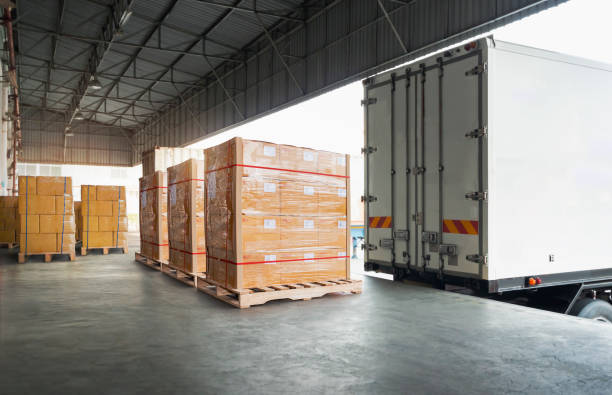How Does Warehouse Fulfillment Improve Supply Chain Efficiency?
How Does Warehouse Fulfillment Improve Supply Chain Efficiency?
Blog Article
In the modern logistics landscape, warehouse fulfillment plays a critical role in streamlining supply chain operations across various industries. Businesses must find dependable fulfillment solutions if global marketplaces get more competitive and consumer expectations keep rising in order to keep ahead. Particularly in sensitive sectors like healthcare, where demand for medical devices 3PL services is great, effective fulfillment techniques can greatly influence general success. This paper investigates how supply chain efficiency is improved by warehouse fulfillment as well as the reasons many companies now find it absolutely essential.
Understanding Warehouse Fulfillment in the Supply Chain
Receiving, organizing, selecting, packing, and shipping orders from a central location is the process known as warehouse fulfillment. For manufacturers, stores, e-commerce businesses, and third-party logistics providers (3PLs), it forms the backbone since it helps them to rapidly and precisely meet consumer needs.
Many companies outsource these activities to fulfillment centers or specialized medical device 3PL providers rather than running them in-house. In order processing, this increases speed and accuracy in addition to lowering overhead expenses. Ensuring effective handling of inventories and items reaching consumers with least delay or mistake is the aim.

Accelerated Order Processing and Reduced Lead Times
Effective warehouse fulfillment has among its main benefits the potential to speed order processing. Automation, barcode scanning, modern software solutions, and well-optimized warehouse environments all help to simplify every phase of the order life. From inventory to final product shipping, every stage is watched for speed and accuracy.
For companies with strict delivery schedules, like the medical field, this is extremely helpful. A medical device 3PL has to guarantee that life-saving items like diagnostic tools or surgical tools arrive right away to hospitals. Fast order fulfillment lowers lead times, therefore minimizing the difference between product demand and delivery and finally producing a more responsive supply chain.
Inventory Accuracy and Real-Time Visibility
A major component of supply chain effectiveness, inventory accuracy is improved in part by effective warehouse fulfillment. Using inventory management systems (IMS), which provide real-time view of stock levels, product location, and order status, fulfillment centers focus. This degree of openness lets companies prevent running out of important items or overstocking.
Real-time inventory control is absolutely essential in the case of medical equipment, where product specifications, expiration dates, and compliance rules must be painstakingly managed. Maintaining precise inventory counts helps a medical device 3PL supplier avoid expensive mistakes that can compromise patient care or industry standards.
For managers of supply chains, real-time visibility also improves decision-making. Businesses that know what is in stock, where it is located, and how quickly it is moving will be better able to project demand and make wise buying decisions.
Cost Reduction Through Operational Efficiency
Along with accelerating accuracy and speed, warehouse fulfillment results in significant cost reductions all across the supply chain. By contracting a third-party supplier to handle fulfillment activities, one removes the requirement for investment in manpower, storage facilities, tools, and technologies. Rather, companies pay for the services they consume—such as transportation, order volume, or storage capacity.
Particularly helpful for businesses in the medical sector is this model. Many times already, a medical device 3PL supplier has the infrastructure and knowledge required to comply with health standards and preserve delicate equipment. This lessens the expenses and complexity involved in implementing internal specialized fulfillment systems.
Furthermore, because of their great order volume, fulfillment centers can negotiate cheaper shipping rates, therefore reducing distribution expenses for their clients. Since supply chain costs mostly consist of transportation fees, maximizing this element might result in notable savings.
Enhanced Scalability and Flexibility
Scalability provided by warehouse fulfillment services lets companies expand free from constraints on their logistics capacity. Whether at seasonal peaks or unanticipated surges, fulfillment centers can rapidly expand operations to meet greater demand when order volumes rise.
In the medical device industry, where demand could change quickly depending on public health crises or new medical advances, this adaptability is absolutely vital. Without upsetting the supply chain, a medical device 3PL can modify its storage, packing, and distribution techniques to fit new needs. Faster responses to changes in the market help companies to guarantee resilience and continuity.
Quality Control and Regulatory Compliance
Especially for sectors like healthcare, another crucial advantage of warehouse fulfillment is the capacity to implement rigorous quality control and preserve regulatory compliance. Before delivery, fulfillment centers follow set procedures to look for order accuracy, product quality, and packing integrity.
Regarding medical equipment, quality control is not optional; it is rather required. Medical device 3PL providers have to follow rules including FDA policies, Good Distribution Practices (GDP), and other worldwide norms. Professional fulfillment services help companies guarantee that goods are kept and transported in line with these criteria, therefore lowering the possibility of recalls or fines.
Moreover, fulfillment centers sometimes keep thorough audit trails, which are absolutely vital for traceability and reporting in very regulated sectors. This degree of control guarantees that every item delivered can be traced back to its source, therefore supporting supply chain integrity.
How Does Warehouse Fulfillment Support Omnichannel Distribution?
Through support of omnichannel distribution techniques, warehouse fulfillment improves supply chain effectiveness. Customers of today want goods delivered via several channels: online, in-store, or straight-forward delivery. Fulfillment centers are designed to handle intricate distribution systems, therefore guaranteeing that goods get at their intended destination via any method.
Companies who market across e-commerce platforms, marketplaces, and retail storefronts will find this strategy very helpful. Order processing and centralized inventory control made possible by an integrated fulfillment system help to improve customer satisfaction by lowering fulfillment mistakes.
From one warehouse, a medical device 3PL might, for instance, deliver goods to hospitals, clinics, internet pharmacies, and medical stores. This consolidated strategy reduces duplicates and improves delivery effectiveness all around all touchpoints.

Question 1: How can warehouse fulfillment improve customer satisfaction?
Faster delivery times, increased order accuracy, and better inventory availability all help warehouse fulfillment increase customer happiness. Real-time tracking and simplified logistics help consumers to receive their goods faster and with less mistakes. Accurate and timely delivery of medical devices is essential for sectors like healthcare, hence fulfillment services help to enable such dependability.
Question 2: Why is warehouse fulfillment important for medical device 3PL providers?
Medical device 3PL suppliers depend on warehouse fulfillment since it guarantees that regulated and delicate products are handled, kept, and transported following rigorous industry requirements. Crucially for patient safety and operational continuity, it facilitates compliance with health rules, helps to preserve product integrity, and allows prompt delivery to healthcare institutions.
Conclusion
Improving supply chain efficiency in several spheres—including speed, accuracy, scalability, and cost-effectiveness— depends critically on warehouse fulfillment. Using established procedures and cutting-edge technologies, fulfillment facilities help companies to save running costs and react more quickly to market needs. For sectors like healthcare, where medical device 3PL suppliers have to provide high-performance logistics with accuracy and compliance, this is especially vital. Warehouse fulfillment is no more a luxury in a world when supply chain dependability is tightly linked to corporate success; it is a need.
Report this page